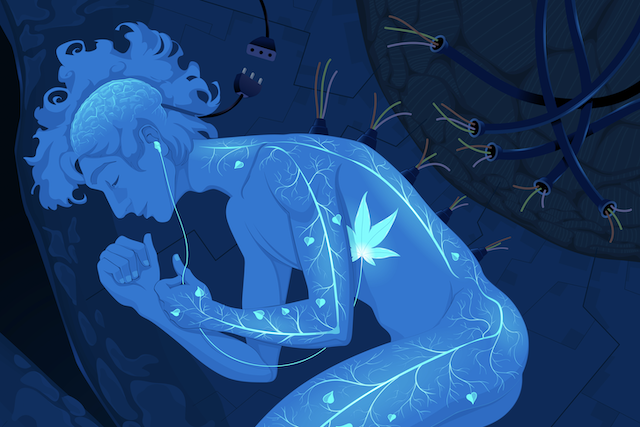This Is The Real Reason Your Shampoo Isn't Working
What gives?

Advertisement
This ad is displayed using third party content and we do not control its accessibility features.

Former Senior Beauty & Lifestyle Editor
Former Senior Beauty & Lifestyle Editor
Jamie Schneider is the former Senior Beauty Editor at mindbodygreen. She has a B.A. in Organizational Studies and English from the University of Michigan, and her work has appeared in Coveteur, The Chill Times, and Wyld Skincare.
Image by Marko Milovanović / Stocksy October 14, 2024 We carefully vet all products and services featured on mindbodygreen using our Our selections are never influenced by the commissions earned from our links. Imagine: You score a brand-new shampoo-conditioner duo, and your hair looks fantastic post-wash. The curls are bouncy, the strands are soft, the scalp feels light as air. Then after a while, those results become a bit…meh. Your hair isn't exactly worse for wear, but the outcome certainly doesn't seem as sparkly. So what gives? Do hair care products really come with diminishing returns? I asked the experts to debunk the common situation—find their answers ahead. 
Can your hair get "used" to products?
Short answer? Not exactly. Anecdotally, some people swear their hair experiences tachyphylaxis1—where your body desensitizes to a certain drug, rendering it ineffective—but that's very unlikely with general hair care products. (Whereas if you use a prescription-strength formula—say, a derm-ordered dandruff shampoo—you might have a leg to stand on here.)
But oftentimes, it's not the products themselves that stop working; it's your hair and scalp that change over time from factors like weather, hormone fluctuations, age, water composition, styling choices, etc.
"So your hair needs may change, but it's not necessarily due to your hair getting used to the products you are using," hairstylist Cynthia Alvarez tells mindbodygreen. And the efficacy of your products can totally change based on how your hair looks and feels on a given day.
"It's important to realize that different products are not only geared toward different hair types but different hair needs," Alvarez continues. "These factors should always be your first step when determining how to care for your hair."
There's also something to be said for the excitement that comes with a shiny new hair care product. "I don't believe that the efficacy of a product changes, but possibly the energy around using it [does] or that the excitement wears off," says hairstylist Mara Roszak, founder of RŌZ. It happens to all of us—even the pros! As the initial buzz wears off, so do the game-changing results.
How to keep things fresh
There's nothing wrong with switching up your hair care regimen. Test all the products you please! Just know that there's also nothing "wrong" with your standard go-to's, so don't toss them thinking they're ineffective—your hair just might need some extra TLC.
"Rather than switching products regularly, I suggest adding in additional weekly or biweekly treatments," shares Roszak. So, yes, you might need to swap a different product in the rotation, but not because your previous selection has lost its luster—your strands just need different care at the moment.
For example, "One week it could be treating your scalp and strands with a deep nourishing oil treatment," Roszak offers. "It may be adding a deeper clarifying cleanser for a weekly thorough cleanse." (You could also opt for a scalp brush to manually lift stubborn buildup.) Or if your hair appears dull and limp, you might need to fold a hydrating hair mask into the rotation to breathe some life into those strands.
What treatments you add will ultimately depend on your hair's needs, so it's important to I.D. your strands before hopping under the spray. "Is [your hair] feeling dry? Is your scalp oily? It's OK to have different products in your routine that you can rotate in and out as needed," Alvarez explains.
Having a specific hair care goal in mind can work too, when it comes to selecting the right products for your arsenal. In drier climates, thicker conditioners and hydrating shampoos will be your best bet. If frizz is your main gripe, Alvarez notes a smoothing shampoo-conditioner duo can help flatten the cuticle. These names aren't just marketing ploys—a smoothing set likely contains shea butter or avocado oil, two ingredients known for moisturizing dry, frizz-prone strands.
Best products for a reset
RŌZ Willow Glen Treatment Oil
$ 48
I literally gasped after seeing how shiny my hair looked from using this treatment oil. Deeply hydrating, it effortlessly sinks into each strand and keeps my hair nicely lubricated while I shampoo. Apply it on days your hair feels extra parched, and you’ll thank me later.
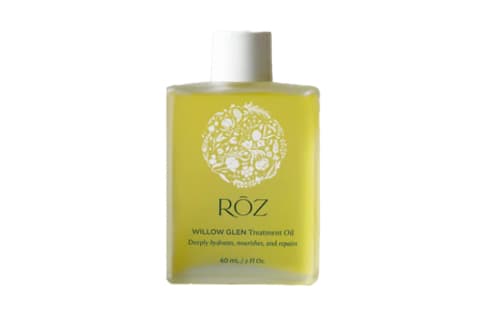
Biolage Normalizing Clean Reset Shampoo
$ 27.99
To me, this Biolage number smells like home. The shampoo has been in my household for ages, for good reasons: The lather deeply cleanses my scalp and the lemongrass aroma refreshes my senses. My tresses feel bouncier than ever after each wash.
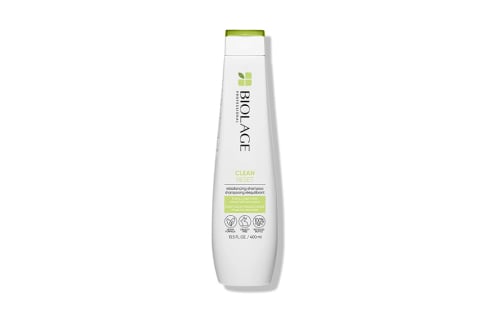
Virtue Restorative Treatment Mask
$ 70
I always recommend swapping a hair mask in place of conditioner if you have thicker hair—and especially if you deal with damage. This Virtue number makes my locks feel especially silky. Best part? It only needs three minutes to work its magic.
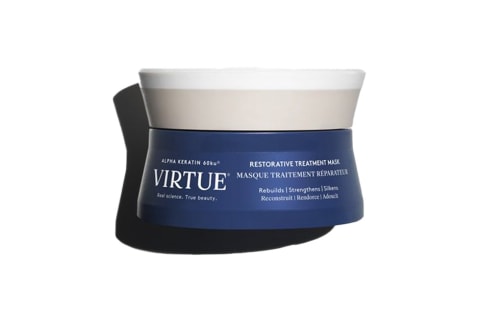
Ceremonia Scalp Masajeador
$ 16
Never underestimate the power of a good scalp brush! If you find your shampoo underperforming, you may need to manually lift buildup with the gentle exfoliating tool. You’d be surprised by how much of a difference a little scalp massage can make.
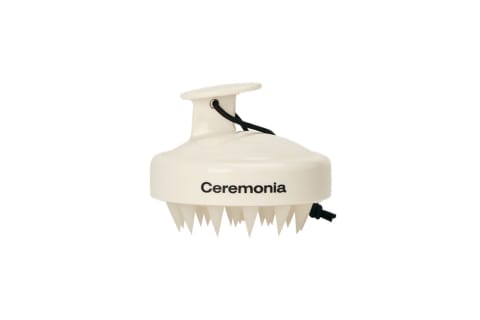
The takeaway
Contrary to what you might think, no, your hair does not get used to products. You're either just familiar with the results yourself, or your hair needs a little something extra based on its ever-evolving needs. Hair care is a journey, not a destination, and it's possible to learn something new about your own strands every single day. I'd suggest leaning in to each discovery, just like you would a brand-new shampoo.

 JimMin
JimMin 












